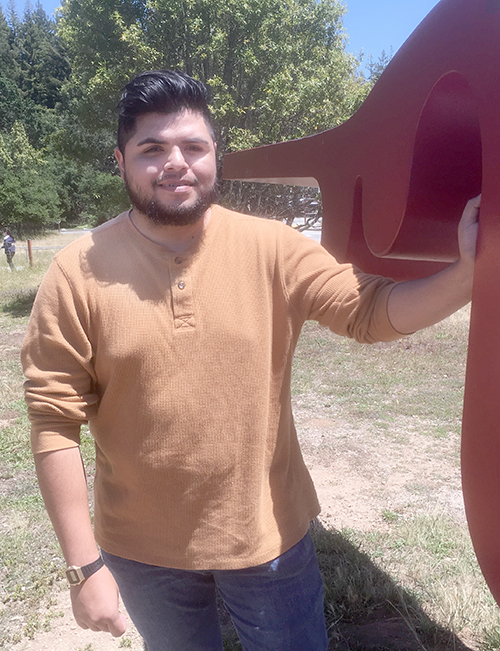Campus News
The power of research
Wilfrido Hernández Flores discovered social science research in the Culture and Achievement Collaborative, and it changed his life

When Wilfrido Hernández Flores transferred into UC Santa Cruz, an academic counselor told him, “UCSC is a research institution. I highly recommend you get involved in research.” Hernández wasn’t sure about this—he’d just been thinking he’d get a degree and be on his way—but he gave it more thought, and not long after that meeting he found a research topic.
Hernández (Carson ‘19, psychology/community studies) had a growing sense of guilt about leaving his home in Los Angeles. He couldn’t put a name to it until he read an article by Psychology Professor Rebecca Covarrubias and learned about the concept of “family achievement guilt.” First-generation college students in particular may feel a sense of guilt at the difference in opportunities they experience compared with their parents and other family members.
It was validating to see his personal experience reflected in the research, and Hernández ended up doing his own senior thesis under Professor Covarrubias’s supervision as a member of her Culture and Achievement Collaborative.
“My research really tried to shed light on why these students experience this,” he says.
His research project found different reasons why low-income, first-generation students report experiencing family achievement guilt, such as not being able to help their families through economic struggle. The finding could help focus institutional practices—Hernández and his fellow researchers suggested continued work to identify how the university could alleviate feelings of family achievement guilt.
Hernández hopes this research to serve as a validating and empowering tool for the university to continue supporting low-income, first-generation students.
Following his graduation in 2019, Hernández took a position with a Santa Cruz–area research firm. He says the experience in the Collab was transformational and rewarding. He had never considered a career involving research; now Hernández plans to attend graduate school.
He ultimately hopes to become a university professor, using his research experience as a foundation for addressing issues of underrepresentation.